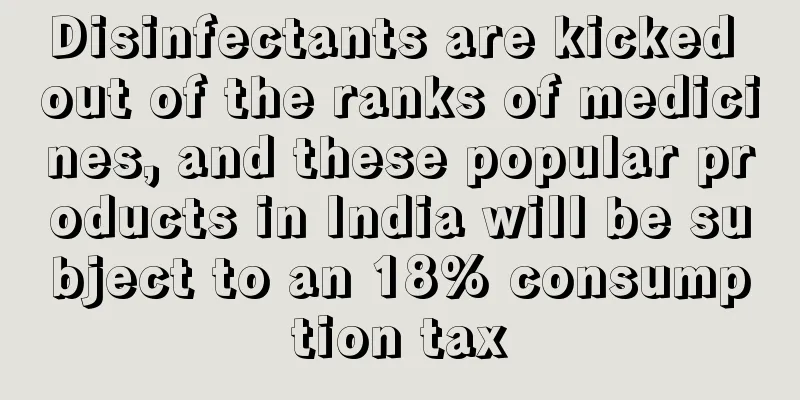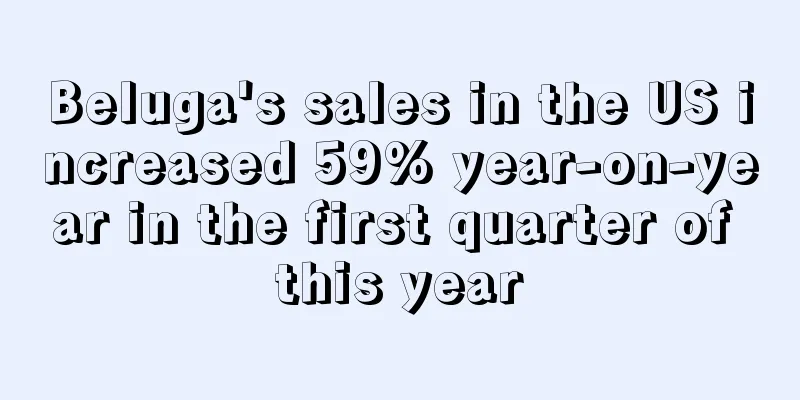Disinfectants are kicked out of the ranks of medicines, and these popular products in India will be subject to an 18% consumption tax

|
The Karnataka bench of the GST Authority for Advance Rulings ( AAR ) recently ruled that hand sanitisers are not medicines. Hence , the products will be subject to GST of 18% . Since 2020, the new coronavirus has been raging around the world, and India is one of the countries with the most serious epidemic in the world, and has become the second country with more than 10 million confirmed cases of infection. As of now, the epidemic situation in India remains severe.
Affected by the epidemic, cleaning has become one of the most concerned issues for Indian people since 2020. The popularity of the theme of "cleaning" remains high, and the search volume of multiple related sub-terms on the theme of cleaning has also continued to increase. As cleaning becomes a top priority, related cleaning products have also become regular players on the best-selling list. These products include personal cleaning and care products such as shampoo, shower gel, soap, laundry detergent, laundry powder and other products that have the function of disinfecting viruses and bacteria, as well as disinfectant products such as alcohol-containing hand sanitizer, disinfectant spray, alcohol wipes, etc.
According to Indian law, disinfectant products, as ordinary commodities, are subject to an 18% goods and services tax (GST). However, shortly after the outbreak of the epidemic, India's Wipro Enterprises ( a cleaning and toiletries company ) contacted the AAR to have disinfectants classified as pharmaceutical products, so that disinfectant products as medicines are no longer subject to the GST.
These products include alcohol-based hand sanitizers, products containing iodine cleaning solutions, and other disinfectant products that have obtained a pharmaceutical license. Recently, the ARR judge ruled that disinfectant products are not drugs. The ARR judge believes that disinfectant products cannot treat patients' diseases or prevent any diseases. They are just substitutes for soap and therefore cannot be identified as drugs. In the future, disinfectant products will be subject to an 18% consumption tax like other non-drug products. For sellers, whether disinfectant products are still worth a try remains to be considered. On the one hand, the 18% consumption tax will reduce some of the profits of the products, and the sellers' income will decrease.
On the other hand, the WHO said that it is expected that the global epidemic will still be difficult to end by the end of 2021, and anti-epidemic work will continue. As a severely affected area, India's epidemic situation is in line with the WHO's prediction. Since mid-to-late February, the number of confirmed cases in India has surged, and 240 mutant viruses have emerged. Therefore, disinfectant products will continue the hot sales trend of 2020, with a good momentum.
Relevant sellers can consider the above factors comprehensively and make decisions. Cross-border e-commerce E-commerce market E-commerce platform |
>>: The scale may reach 25 trillion won! South Korea's health care products market is booming
Recommend
Net income reaches $2.5 billion, new customers nearly double, Overstock achieves record growth in the US
Recently, Overstock, an American e-commerce retai...
What is sinco? sinco Review, Features
Sinco Food Equipment was founded in 2002 and has m...
What is International Express Logistics Network? International Express Logistics Network Review, Features
The International Express Logistics Network provi...
What is MiKe Cross-border Operation? MiKe Cross-border Operation Review, Features
Hangzhou MiKe Technology Co., Ltd. is a new cross-...
Changes in German consumer spending during the epidemic, fashion orders increased by 35%
Since the outbreak of the epidemic, the German e-...
What is ODR (Order Defect Rate)? ODR (Order Defect Rate) Review, Features
The Order Defect Rate ( ODR ) is the primary metr...
What is Shenzhen Mengbang Import and Export Supply Chain Co., Ltd.? Shenzhen Mengbang Import and Export Supply Chain Co., Ltd. Review, Features
Shenzhen Mengbang Import and Export Supply Chain C...
Due to frequent safety issues, Amazon Christmas lights are urgently recalled!
Christmas is a big festival in European and Ameri...
Guangdong Provincial Department of Commerce and 1688 reached a strategic cooperation, allowing 320,000 factories to learn how to walk on both domestic and foreign trade
Dongguan Praya Textile Factory confirmed this wit...
What is CaixaBank? CaixaBank Review, Features
CaixaBankA secure virtual card that can be used f...
A single product category sold 5.5 billion yuan! Are these products that are popular among listed sellers still available now?
With its powerful advantages such as high cost-ef...
64% of Main Street businesses in the U.S. will see sales growth
Although the latest variant of the new coronaviru...
Amazon launches apprenticeship system, sellers: No, thank you
Yesterday, Amazon UK released a new announcement ...
China Customs: Multiple measures to help companies build overseas warehouses
According to statistics, China's cross-border...
A marketing force that cannot be ignored! TikTok launches an "incubation" program for black creators
According to Forbes, TikTok has launched a three-...









